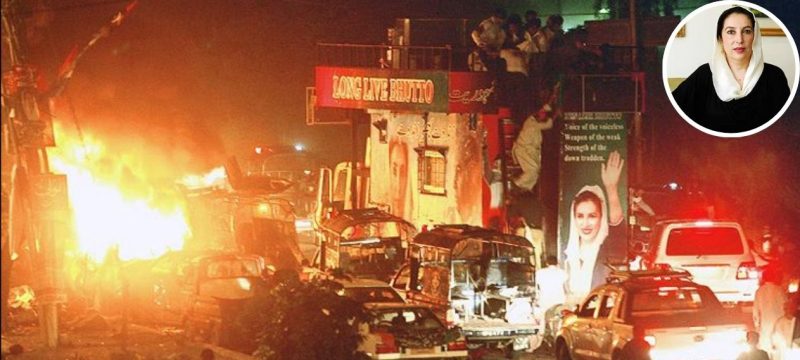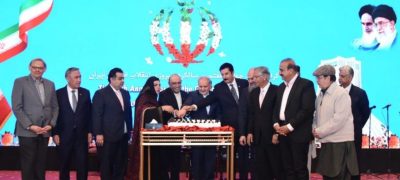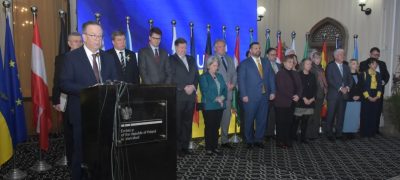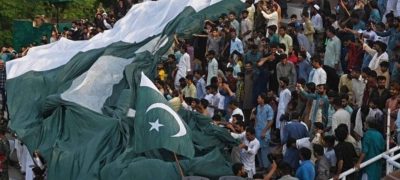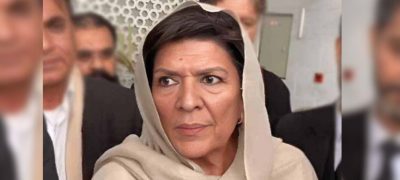Today marks the 17th anniversary of the Karsaz bombing, one of the deadliest terrorist attacks in Pakistan’s political history.
On October 18, 2007, a motorcade carrying former Prime Minister Benazir Bhutto was targeted by suicide bombers in Karachi, resulting in the deaths of at least 180 people and injuring over 500. The attack specifically aimed at Bhutto and her supporters as she returned to Pakistan after eight years in self-imposed exile.
This attack, which occurred just two months before Bhutto’s assassination, dealt a severe blow to the Pakistan Peoples Party (PPP) and highlighted the country’s unstable security situation at that time.
Read more: 19 Years After the 2005 Earthquake: Incomplete Recovery and Unhealed Wounds
Karachi’s streets were filled with supporters eager to welcome Bhutto back when two explosions struck the crowd as her truck traveled from the airport to Muhammad Ali Jinnah’s tomb for a planned rally. Although Bhutto survived, many of her loyal supporters and police officers lost their lives.
In the aftermath, Bhutto called for an investigation into why the streetlights along the route were turned off, as this hindered her security team from preventing the attack. Despite requests for an inquiry by international experts, the Pakistani government declined, expressing confidence in local law enforcement’s capabilities.
The attack was later linked to extremist groups, including Al-Qaeda and elements of the Taliban, though Bhutto had expressed concerns about certain individuals within then-President Pervez Musharraf’s regime.
Al-Qaeda’s Fahid Mohammed Ally Msalam and Tehrik-i-Taliban leader Baitullah Mehsud were both implicated in the incident, and both were later killed in drone strikes in Pakistan.
On this solemn day, PPP Chairman Bilawal Bhutto Zardari honored the 180 martyrs of the Karsaz tragedy. He stated that the attack was a deliberate conspiracy to silence democratic voices, insisting that those who attempted to suppress democracy through violence had ultimately failed.
“Martyr Benazir Bhutto was targeted when 3 million people came out to welcome her,” Bilawal reflected on the massive turnout that day. He emphasized that the tragedy serves as a reminder of the sacrifices made by brave heroes for democracy.
Bilawal highlighted that the sacrifices of PPP supporters, known as “Jiyalas,” are a vital part of the party’s long and peaceful journey toward a democratic Pakistan. He reaffirmed that the struggle for a peaceful, democratic nation was Benazir Bhutto’s vision and continues to inspire the party’s fight against extremism and injustice.
“Dictatorship and terrorists joined forces to target martyr Benazir Bhutto and the party’s leadership,” Bilawal noted, emphasizing the coordinated efforts by adversaries to undermine democracy. He vowed that the blood shed in the Karsaz tragedy would continue to fuel Pakistan’s battle against extremism, honoring those who lost their lives in the pursuit of democratic values.
As Pakistan reflects on this tragic day, Benazir Bhutto’s legacy lives on, and her vision for a peaceful, democratic Pakistan continues to inspire millions. This anniversary serves as a solemn reminder of the challenges the nation has faced in combating terrorism and the lasting effects of political violence on its journey toward democracy.


